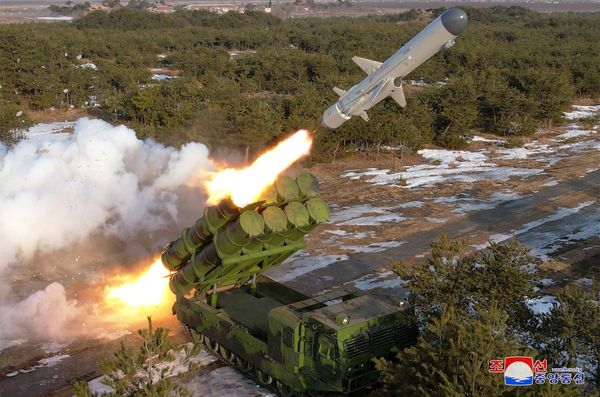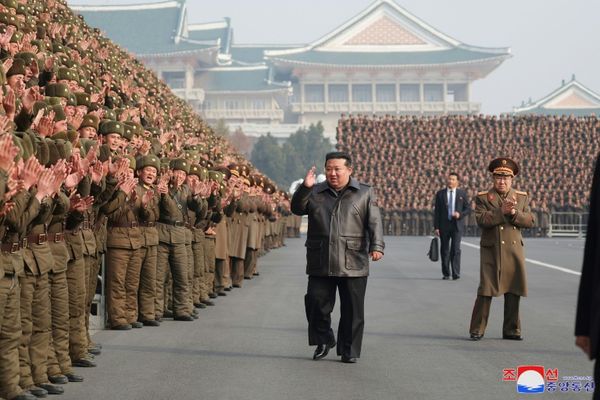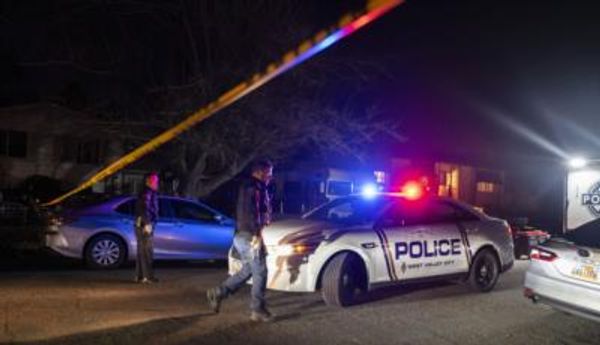
Copenhagen (AFP) - Moscow questioned Wednesday whether Washington caused mystery undersea gas pipeline leaks in Europe that have been blamed on sabotage, in a turn of the tables that US officials bluntly called "ridiculous".
The three outflows from the Russia-Germany Nord Stream 1 and 2 pipelines have sent natural gas prices soaring, exacerbating an energy crunch in Europe as it stands on the threshold of winter and fanning geopolitical tensions.
Swedish intelligence announced it was opening an investigation into the massive leaks in the Baltic Sea, branding them "aggravated sabotage", just hours after the EU called the damage "deliberate".
But the question of who is responsible has prompted high-level finger-pointing, with Moscow charging the United States had already said Nord Stream 2 was "finished" if Russia invaded Ukraine.
President Joe "Biden is obliged to answer the question of whether the US carried out its threat," foreign ministry spokeswoman Maria Zakharova said on social media.
Washington dismissed the suggestion, with a spokeswoman for the National Security Council saying: "We all know Russia has a long history of spreading disinformation and is doing it again here."
Among Western allies, suspicion for the leaks has focused on Russia, which has cut gas supplies to Europe in retaliation for severe Western sanctions over the war in Ukraine.
Russia replied on Wednesday by saying it will ask for the United Nations Security Council to convene "in connection with provocations" regarding the ruptured pipes.
Following Europe's sabotage allegations, fossil fuel-rich Norway boosted security at its installations in response.
They "are not a coincidence", EU foreign policy chief Josep Borrell said in a statement."All available information indicates those leaks are the result of a deliberate act."
He warned: "Any deliberate disruption of European energy infrastructure is utterly unacceptable and will be met with a robust and united response."
EU chiefs Ursula von der Leyen and Charles Michel have also blamed the Nord Stream leaks on sabotage, as have leaders of several European countries.
'Increased vigilance'
Michel tweeted that they "appear to be an attempt to further destabilise energy supply to EU".
He added: "Those responsible will be held fully accountable and made to pay."
The EU is currently mulling further sanctions on Russia for annexation votes imposed on four regions in Ukraine that Moscow's forces occupy.
Neither of the Nord Stream pipelines are currently operational, but they were full with gas when they were hit with what Swedish seismologists said were "massive releases of energy".
One of the seismologists told AFP "there isn't much else than a blast that could cause it".
Danish Defence Minister Morten Bodskov told reporters in Brussels that "it can easily take one or two weeks for the area to calm down enough" for an inspection to verify the cause.
Two Danish military vessels have been sent to the area.
Non-EU member Norway -- which has now overtaken Russia as the biggest supplier of gas to Europe -- said it will beef up security around its oil and gas facilities.
"The government has decided to put measures in place to increase security at infrastructure sites, land terminals and platforms on the Norwegian continental shelf," Norwegian Energy Minister Terje Aasland said.
The Norwegian Petroleum Safety Authority earlier this week called for "increased vigilance from all operators and shipping companies on the continental shelf".
Built in parallel to the Nord Stream 1 pipeline, Nord Stream 2 was intended to double the capacity for Russian gas imports to Germany.
But Berlin blocked newly completed Nord Stream 2 in the days before the war.
Germany, which has been highly dependent on imports of fossil fuels from Russia to meet its energy needs, has since come under acute stress as Moscow's supplies dwindle.
Sweden and Poland agree sabotage is the most likely cause of the Nord Stream leaks, with Warsaw suggesting Russia was probably the culprit, to escalate the war in Ukraine.







